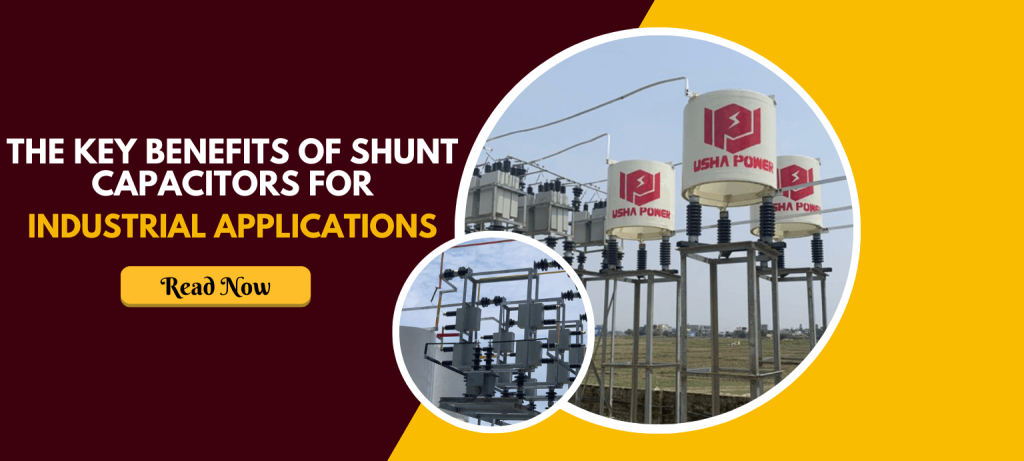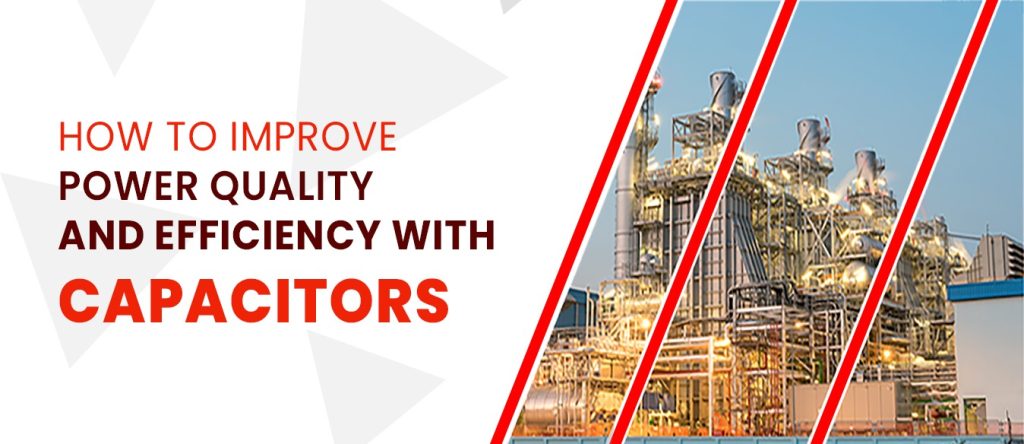Renewable energy is the key to a sustainable future, and its integration into our power systems is more critical now than ever. Capacitors play an essential role in making renewable energy systems more efficient and reliable. In this blog post, we’ll explore how capacitors are revolutionizing renewable energy, making it more accessible and effective for everyone. This guide will enlighten you on the importance of capacitors in renewable energy systems.
Introduction to Capacitors
Capacitors are electronic components that store and release electrical energy. Unlike batteries, which store energy chemically, capacitors use an electric field. This fundamental difference gives capacitors unique properties that make them invaluable in renewable energy systems. They can charge and discharge rapidly, which is crucial for stabilizing power grids and smoothing out energy supply fluctuations.
What are Capacitors?
Capacitors consist of two conductive plates separated by an insulating material called a dielectric. When voltage is applied, an electric field forms across the dielectric, storing energy. This stored energy can be quickly released when needed, making capacitors ideal for applications requiring rapid energy discharge.
How Do Capacitors Work?
The working principle of capacitors is based on their ability to store and release energy quickly. When connected to a power source, electrons accumulate on one plate, creating a negative charge, while the other plate loses electrons, creating a positive charge. The dielectric material prevents the charges from neutralizing, allowing the capacitor to store energy.
Why are Capacitors Important in Renewable Energy Systems?
In renewable energy systems, capacitors help manage the intermittent nature of energy sources like solar and wind. By storing excess energy generated during peak production times and releasing it when production is low, capacitors ensure a stable energy supply. They also help in power conditioning, voltage regulation, and improving overall system efficiency.
Types of Capacitors Used in Renewable Energy
Several types of capacitors are used in renewable energy systems, each with specific characteristics and applications. Understanding these types can help in selecting the right capacitor for a particular renewable energy project.
Electrolytic Capacitors
Electrolytic capacitors are known for their high capacitance values, making them suitable for energy storage applications. They are commonly used in solar power systems to stabilize voltage and smooth out fluctuations in power output.
Ceramic Capacitors
Ceramic capacitors offer high-frequency performance and stability. They are often used in wind turbines to filter out noise and improve the quality of the generated power. Their small size and durability make them ideal for harsh environments.
Supercapacitors
Supercapacitors, also known as ultracapacitors, provide much higher capacitance than traditional capacitors. They are used in applications requiring large bursts of energy, such as grid stabilization and short-term energy storage in renewable systems. Supercapacitors are critical in electric vehicles powered by renewable energy.
Capacitors in Solar Power Systems
Solar power is one of the most widely used forms of renewable energy. Capacitors play a crucial role in enhancing the efficiency and reliability of solar power systems.
Energy Storage and Smoothing
Solar panels generate electricity based on sunlight, which can be inconsistent due to weather conditions. Capacitors store excess energy generated during sunny periods and release it during cloudy or nighttime conditions, ensuring a continuous power supply.
Voltage Regulation
Capacitors help maintain a stable voltage level in solar power systems. They absorb voltage spikes and fill voltage drops, providing a consistent output to the grid or battery storage systems. This regulation is vital for protecting sensitive electronic equipment.
Power Conditioning
Capacitors improve the quality of power generated by solar panels by filtering out noise and reducing harmonic distortion. This conditioning ensures that the power supplied to homes and businesses is clean and reliable.
Capacitors in Wind Power Systems
Wind power is another significant source of renewable energy, and capacitors are essential in optimizing its performance.
Grid Stabilization
Wind turbines generate power based on wind speed, which can vary significantly. Capacitors help stabilize the grid by storing excess energy during high wind periods and releasing it during low wind conditions. This stabilization is crucial for maintaining grid reliability.
Power Quality Improvement
Capacitors filter out electrical noise and harmonics generated by wind turbines. This improvement in power quality ensures that the electricity supplied to the grid meets the required standards and reduces wear and tear on electrical components.
Reactive Power Compensation
Wind turbines can cause reactive power imbalances, leading to inefficiencies in the power grid. Capacitors provide reactive power compensation, enhancing the overall efficiency and stability of the system.
Capacitors in Hydro Power Systems
Hydropower is a reliable and long-established form of renewable energy. Capacitors contribute to the efficiency and stability of hydro power systems in several ways.
Energy Storage
While hydropower is often more consistent than solar or wind, there can still be fluctuations in power generation. Capacitors store energy during periods of high water flow and release it during low flow periods, ensuring a steady power supply.
Load Balancing
Capacitors help balance the load in hydro power systems by absorbing excess energy during periods of low demand and releasing it during high demand. This load balancing improves the overall efficiency of the system.
Power Factor Correction
Capacitors correct the power factor in hydro power systems, reducing losses and improving the efficiency of power transmission. This correction is vital for maximizing the output of hydroelectric plants.
Capacitors in Biomass Power Systems
Biomass power systems convert organic materials into electricity. Capacitors play a crucial role in enhancing the performance and reliability of these systems.
Energy Storage
Biomass power generation can be inconsistent due to variations in fuel supply and combustion efficiency. Capacitors store excess energy during peak production periods and release it during low production periods, ensuring a continuous power supply.
Voltage Stabilization
Capacitors help stabilize voltage levels in biomass power systems, protecting sensitive equipment and improving the reliability of the power supply.
Power Quality Improvement
Capacitors filter out electrical noise and harmonics generated by biomass power systems, ensuring that the electricity supplied to the grid meets the required standards.
Advantages of Using Capacitors in Renewable Energy Systems
Capacitors offer several advantages in renewable energy systems, making them indispensable components in modern power generation.
Improved Efficiency
Capacitors enhance the overall efficiency of renewable energy systems by storing and releasing energy as needed, reducing waste and improving the stability of the power supply.
Increased Reliability
By stabilizing voltage levels and filtering out electrical noise, capacitors improve the reliability of renewable energy systems, ensuring a consistent and clean power supply.
Cost Savings
Capacitors reduce the need for additional infrastructure and equipment by optimizing the performance of existing systems. This optimization leads to significant cost savings for both energy producers and consumers.
The Bottom Line
Capacitors are essential components in renewable energy systems, offering numerous benefits such as improved efficiency, increased reliability, and cost savings. By understanding the role of capacitors and leveraging their unique properties, businesses and organizations can optimize their renewable energy systems and contribute to a sustainable future.
If you’re in search of top-quality capacitors to enhance your renewable energy solutions, then Usha Power is the perfect choice for you. Our capacitors are meticulously designed to meet the highest standards of performance and reliability. By choosing our capacitors, you can ensure that your systems run smoothly and efficiently, minimizing downtime and maximizing energy output. Discover more about our innovative products at https://ushapower.com



